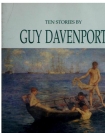Penguin Island - Anatole France (good book recommendations .TXT) 📗

- Author: Anatole France
Book online «Penguin Island - Anatole France (good book recommendations .TXT) 📗». Author Anatole France
All this was in the glances and smiles of our masters in palaeography, and their behaviour discouraged me deeply. One day after a conversation with an eminent sigillographer, I was even more depressed than usual, when I suddenly thought:
“After all, there are historians; the race has not entirely disappeared. Some five or six of them have been preserved at the Academy of Moral Sciences. They do not publish texts; they write history. They will not tell me that one must be a vain fellow to take up that sort of work.”
This idea restored my courage.
The following day I called upon one of them, an astute old man.
“I came, sir,” said I to him, “to ask for the advice that a man of your experience can give. I am taking the utmost trouble in composing a history and I reach no result whatever.”
He answered me, shrugging his shoulders:
“What is the good, my dear sir, of giving yourself so much trouble, and why compose a history when all you need do is to copy the best-known ones in the usual way? If you have a fresh view or an original idea, if you present men and things from an unexpected point of view, you will surprise the reader. And the reader does not like being surprised. He never looks in a history for anything but the stupidities that he knows already. If you try to instruct him you only humiliate him and make him angry. Do not try to enlighten him; he will only cry out that you insult his beliefs.
“Historians copy from one another. Thus they spare themselves trouble and avoid the appearance of presumption. Imitate them and do not be original. An original historian is the object of distrust, contempt, and loathing from everybody.
“Do you imagine, sir,” added he, “that I should be respected and honoured as I am if I had put innovations into my historical works? And what are innovations? They are impertinences.”
He rose. I thanked him for his kindness and reached the door. He called me back.
“One word more. If you want your book to be well received, lose no opportunity for exalting the virtues on which society is based—attachment to wealth, pious sentiments, and especially resignation on the part of the poor, which latter is the very foundation of order. Proclaim, sir, that the origins of property—nobility and police—are treated in your history with all the respect which these institutions deserve. Make it known that you admit the supernatural when it presents itself. On these conditions you will succeed in good society.”
I have given much thought to these judicious observations and I have given them the fullest weight.
I have not here to deal with the Penguins before their metamorphosis. They begin to come within my scope only at the moment when they leave the realm of zoology to enter those of history and theology. It was in truth Penguins that the great St. Maël changed into men, though it is necessary to explain this, for today the term might give rise to confusion.
We call by the name of Penguin in French, a bird of the Arctic regions belonging to the family of the Alcides; we call the type of the Spheniscides, inhabiting the Antarctic seas, manchots. Thus M. G. Lecointe, for example, says in his narrative of the voyage of the Belgica:1 “Of all birds that people the Strait of Gerlache, the manchots are certainly the most interesting. They are sometimes designated, though inaccurately, under the name of the penguins of the South.” Doctor J. B. Charcot affirms,2 on the contrary, that the true and only Penguins are those Antarctic birds which we call manchots, and he gives for reason that they received from the Dutch, who in 1598 reached Cape Magellan, the name of pinguinos, doubtless because of their fat. But if the manchots are called penguins what are we in future to call the Penguins themselves? Dr. J. B. Charcot does not tell us, and he does not seem to have given the matter a moment’s attention.
Well, that his manchots become or re-become Penguins is a matter to which we must consent. He has acquired the right to name them by discovering them. But let him at least allow the Northern penguins to remain penguins. There will be the penguins of the South and those of the North, the Antarctic and the Arctic, the Alcides or old penguins, and the Spheniscides or former manchots. This will perhaps cause embarrassment to ornithologists who are careful in describing and classing the Palmipedes; they will doubtless ask if a single name is really suited to two families who are poles apart from one another and who differ in several respects, particularly in their beaks, winglets, and claws. For my part, I adapt myself easily to this confusion. Whatever be the differences between my penguins and those of M. J. B. Charcot, the resemblances are more numerous and more deep-seated. The former, like the latter, attract notice by their grave and placid air, their comic dignity, their trustful familiarity, their sly simplicity, their habits at once awkward and solemn. Both are pacific, abounding in speech, eager to see anything novel, immersed in public affairs, and perhaps a little jealous of all that is superior to them.
My hyperboreans have, it is true, winglets that are not scaly, but covered with little feathers, and, although their legs are fixed a little farther back than those of the Southerns, they walk in the same way with their chests lifted up and their heads held aloft, balancing their bodies in a like dignified style, and their sublime beak (os sublime) is not the least cause of the





Comments (0)